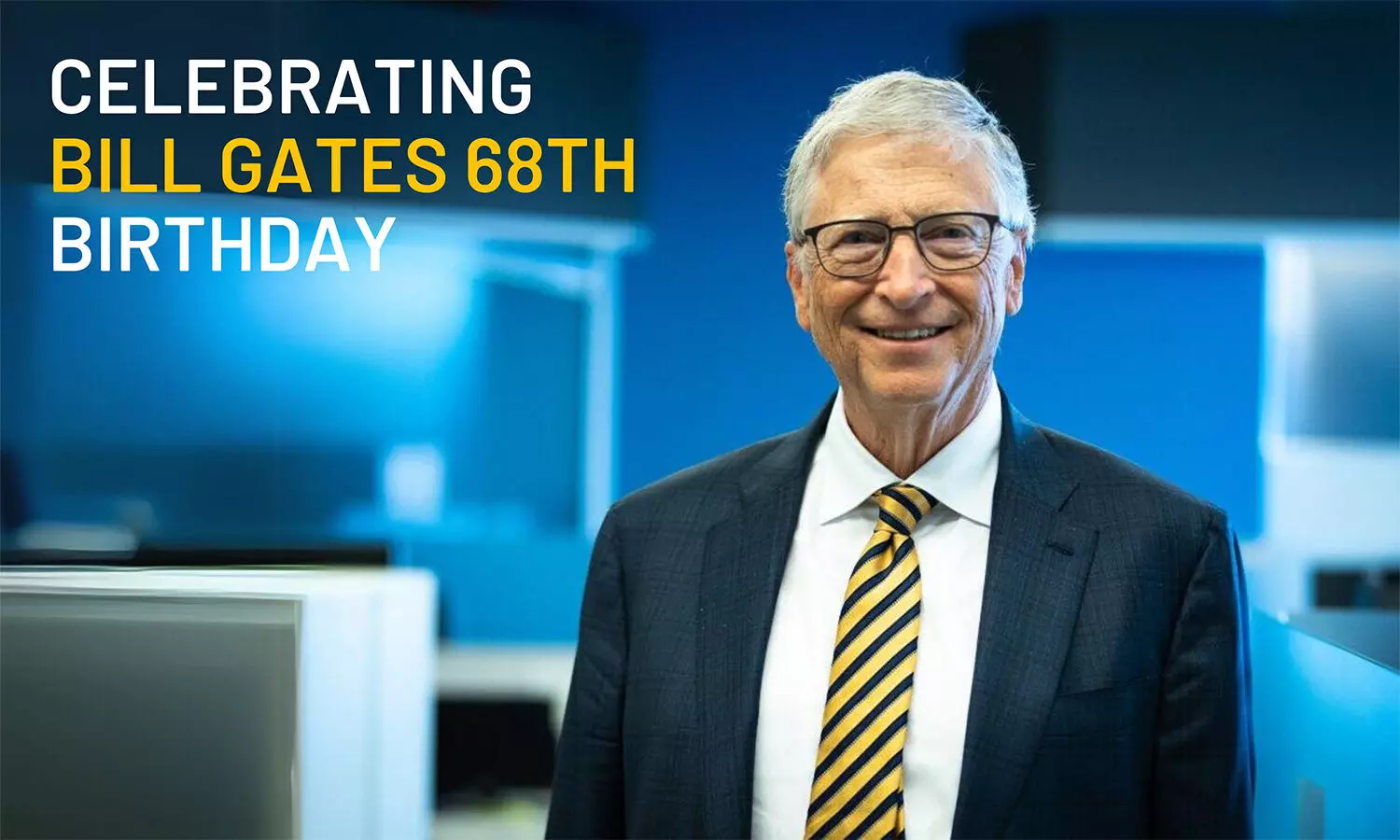Bill Gates’s Birthday: Celebrating His Success & Leadership Traits

Celebrate Bill Gates 68th birthday by exploring his success, leadership traits, and philanthropy as an influential leader.
Who doesn’t know Bill Gates? A visionary who revolutionized the tech world, co-founded Microsoft, and became one of the wealthiest individuals on the planet. As Bill Gates turns 68 on October 28, 2024, his legacy extends far beyond technology. Over the years, he has transformed into a global philanthropist, dedicating his immense fortune to tackling some of the world's most pressing challenges.
As we celebrate his birthday, let us take a closer look at the success and leadership traits that have made him such a powerful figure.
The Birth of Microsoft
Imagine a young college student brimming with curiosity about the future of technology. That was Bill Gates in 1975, a Harvard dropout with an ambitious dream. Together with his childhood friend, Paul Allen, Gates spotted a world-changing opportunity. In an era when computers were colossal machines reserved for corporations and government agencies, Bill and Paul had a daring vision: to make computers accessible to everyone.
In 1975, after learning about a new microcomputer called the Altair 8800, Gates and Allen saw an opportunity. The Altair needed software to operate, so they boldly reached out to its manufacturer, offering to develop a programming language. Remarkably, they didn’t have the code ready yet, but their confidence and vision drove them to promise they could create it—and they did.
After weeks of relentless work in a small garage, Gates and Allen successfully developed the software—and it worked. This marked the birth of Microsoft. What began as a passion project between two friends with a vision soon transformed into a global tech powerhouse.
Under Gates's leadership, Microsoft launched MS-DOS in 1981 and later introduced Microsoft Windows, an operating system that revolutionized the user interface and made computers accessible to the masses. Microsoft wasn't just a business; it was the realization of a dream to change the world through technology.
Key Leadership Traits that Define Bill Gates
1.Visionary Thinking
One of Bill Gates’s most defining leadership traits is his remarkable ability to think ahead. Even in Microsoft’s early days, he had a clear and ambitious vision for personal computing. While many doubted the feasibility of having computers in every home, Gates saw the immense potential and seized future opportunities. Being a visionary isn’t just about predicting trends—it’s about shaping them. Gates didn’t just follow the evolution of technology; he actively drove it. His forward-thinking mindset enabled him to anticipate market needs, helping Microsoft stay ahead of the competition for decades.
2.Clear Focus
Bill Gates's path to success was not without its challenges. He faced setbacks, made mistakes, and navigated countless obstacles along the way. Yet, his unwavering dedication and sharp focus enabled him to overcome each hurdle. Whether it was refining software or tackling legal battles, Gates remained resilient, consistently pushing forward in the face of adversity.
3.Problem-Solving Approach
Another key leadership trait that defines Gates is his problem-solving mindset. He tackles challenges with an analytical approach, constantly seeking ways to improve and make processes more efficient. This ability to identify and solve problems is what enabled him to create products that not only functioned but also addressed real-world needs effectively.
4.Adaptability and Innovation
As the technology landscape changed, so did Gates. His adaptability in response to changing market conditions and emerging technologies has been a hallmark of his leadership. Recognizing the growing importance of the internet, Gates made strategic shifts at Microsoft to ensure the company remained innovative and relevant in a rapidly transforming industry.
5.Empathy and Philanthropy
While Gates’s business skills are extraordinary, his empathy and commitment to making the world a better place are equally important aspects of his leadership. In 2000, he and his then wife, Melinda, founded the Bill & Melinda Gates Foundation, one of the largest private charitable organizations in the world. The foundation focuses on global health, education, and poverty alleviation, and has donated billions of dollars to improve the lives of people in developing countries.
6.Continuous Learning and Curiosity
Despite his success, Gates has remained a lifelong learner. His curiosity and desire to stay informed about the latest developments in technology and other fields have been central to his leadership style. Gates is known for reading extensively and encouraging his employees to continue learning and expanding their knowledge.
7.Integrity and Ethics
Gates is known for his ethical approach to business and leadership, prioritizing integrity in his dealings and fostering a culture of trust within his organizations.
The Future of Bill Gates’s Legacy
As Gates continues to focus on his philanthropic work through the Bill & Melinda Gates Foundation, his legacy as a leader who has shaped the modern world only deepens. Although he stepped down from his day-to-day role at Microsoft in 2008 and left its board in 2020, his influence on the tech industry remains undeniable.
At 68, Gates’s journey is far from over. He continues to inspire future generations of innovators, leaders, and philanthropists. His passion for learning is evident through his frequent book recommendations, which he believes are key to fueling knowledge and creativity. Bill Gates exemplifies how one person’s vision can leave a lasting impact—not only in technology but also in improving the world for future generations.









